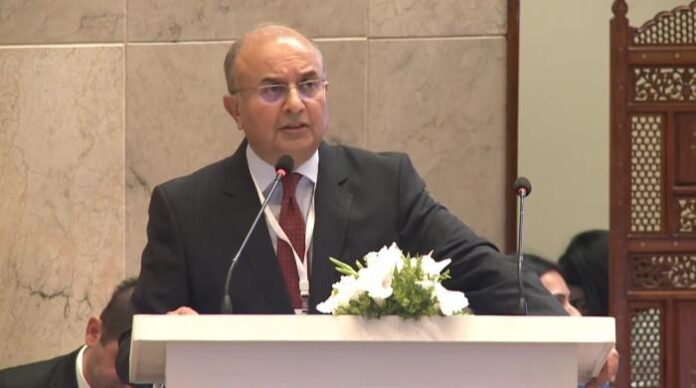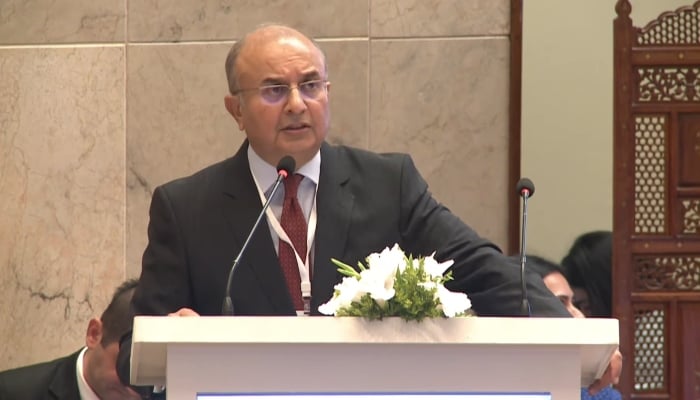ISLAMABAD: Justice Mansoor Ali Shah of the Supreme Court has refused to become a member of special bench formed by the judges committee established under the SC (Practice and Procedure Act), 2023, for the purpose of assigning cases.
In a letter to Chief Justice Qazi Faez Isa, the senior puisne judge stated he was unable to participate in the bench for the same reasons that he mentioned in his letter to the committee secretary dated September 23.
In the previous letter, the senior puisne judge had expressed concerns over the Supreme Court (Practice and Procedure Act), 2023, that deals with the affairs of the top court including the formation of benches.
The ordinance, promulgated in September this year, empowers the chief justice to nominate a judge of his choice in the committee that constitutes the benches. As per the ordinance, the body will comprise the chief justice, the most senior judge after the CJP and the judge nominated by Justice Isa.
Justice Shah had expressed reservations over the “cherry-picking” and removal of Justice Munib Akhtar from the said committee. He had said within hours of the promulgation of the ordinance, the judges committee was reconstituted and Justice Munib was removed from the composition of the committee.
This, he had said few days after CJP Isa had appointed Justice Amin-Ud-Din Khan to the three-member judges’ committee, excluding Justice Munib hours after the promulgation of the new practice law.
Justice Shah, in his letter, had noted that no reasons were given as to why the second senior most judge, Justice Akhtar, was removed from the composition of the committee. “Furthermore, no reasons were given why the next senior most judge was ignored and instead, the fourth senior most judge was nominated as a member of the Committee.”
“Such unfortunate cherry picking and undemocratic display of one-man show are precisely what the Act tried to discourage and replace-a stance that was upheld by the Full Court Bench of this Court in Raja Amer,” he had written.
In response to Justice Mansoor’s letter, CJ Isa on September 26 gave 11 reasons to justify his action.
In his letter, the CJP had said legally he could not be asked about why he nominated a judge as the committee’s third member. Still, the chief justice had provided the reasons for his action, saying he did it because he “always advocated accountability and transparency”.
In his October 23 letter, the senior judge made his participation in the special bench conditional, saying that “until the full court bench determined the constitutional validity of the promulgation of the ordinance as well as of the amendments made thereby or the judges of the SC resolve to act upon these amendments in a full court meeting pending adjudication upon the constitutionality thereof, or the earlier committee comprising the HCJP and two senior most judges is restored, I will not participate in special benches formed by the new committee and will only attend sittings of the regular benches to hear the cases of ordinary litigants in the larger public interest.”
For those reasons, he said, he disassociated himself from the bench constituted in this matter.
On this occasion, he said, he was reminded of a quote from ‘A Man for all Seasons’, where Sir Thomas More said: “I think that when statesmen forsake their own private conscience for the sake of their public duties, they lead their country by a short route to chaos.”
He added: “When in power, we often forget that people of this country are watching our actions, and that history never forgives.”








